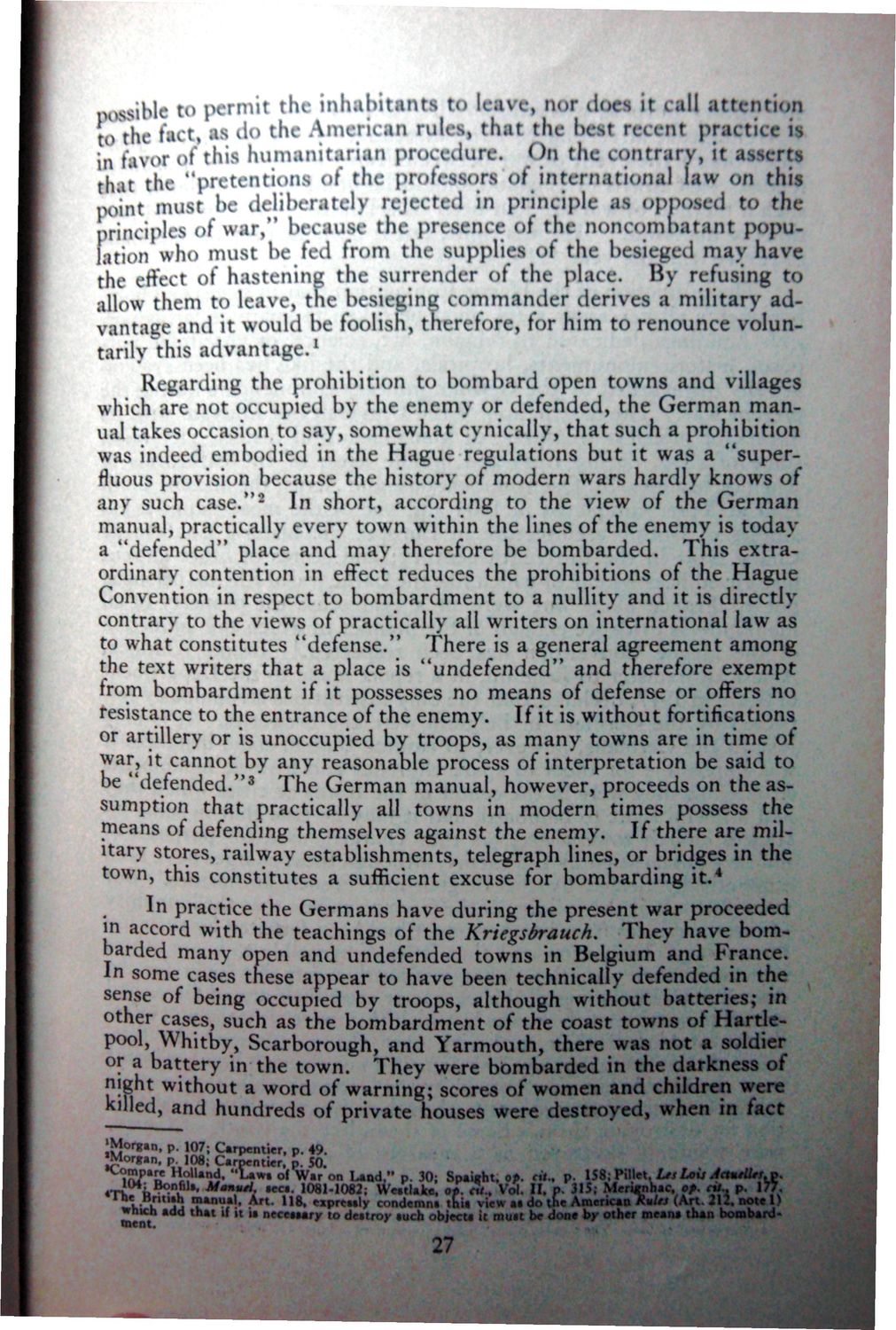| |
| |
Caption: War Publications - WWI Compilation 1923 - Article 14
This is a reduced-resolution page image for fast online browsing.

EXTRACTED TEXT FROM PAGE:
possible to permit the inhabitants to Lave, nor docs it call attention to the fact, as do the American rules, that the best recent practice is in favor of this humanitarian procedure. On the contrary, it asserts that the "pretentions of the professors of international law on this point must be deliberately rejected in princip'le as opposed to the principles of war," because the presence of the noncomoatant population who must be fed from the supplies of the besieged may have the effect of hastening the surrender of the place. By refusing to allow them to leave, the besieging commander derives a military advantage and it would be foolish, therefore, for him to renounce volun1 tarily this advantage. Regarding the prohibition to bombard open towns and villages which are not occupied by the enemy or defended, the German manual takes occasion to say, somewhat cynically, that such a prohibition was indeed embodied in the Hague regulations but it was a "superfluous provision because the history of modern wars hardly knows of 2 any such case." In short, according to the view of the German manual, practically every town within the lines of the enemy is today a "defended" place and may therefore be bombarded. This extraordinary contention in effect reduces the prohibitions of the Hague Convention in respect to bombardment to a nullity and it is directly contrary to the views of practically all writers on international law as to what constitutes "defense." There is a general agreement among the text writers that a place is "undefended" and therefore exempt from bombardment if it possesses no means of defense or offers no resistance to the entrance of the enemy. If it is without fortifications or artillery or is unoccupied by troops, as many towns are in time of war, it cannot by any reasonable process of interpretation be said to 3 be "defended." The German manual, however, proceeds on the assumption that practically all towns in modern times possess the means of defending themselves against the enemy. If there are military stores, railway establishments, telegraph lines, or bridges in the 4 town, this constitutes a sufficient excuse for bombarding it. In practice the Germans have during the present war proceeded in accord with the teachings of the Kriegsbrauch. They have bombarded many open and undefended towns in Belgium and France. In some cases these appear to have been technically defended in the sense of being occupied by troops, although without batteries; in other cases, such as the bombardment of the coast towns of Hartlepool, Whitby, Scarborough, and Yarmouth, there was not a soldier or a battery in the town. They were bombarded in the darkness of night without a word of warning; scores of women and children were killed, and hundreds of private houses were destroyed, when in fact 'Morgan, p. 107; Carpenticr, p. 49. •Morgan, p 108; Carocntier. p. 50. •VOtnDtre H o l l a n d "1 • * , . «f U 7 . _ ^ _ i J »» _ ir\. c_ *_L. --. *-•« « *Th tnent. tf han bombard 27
| |